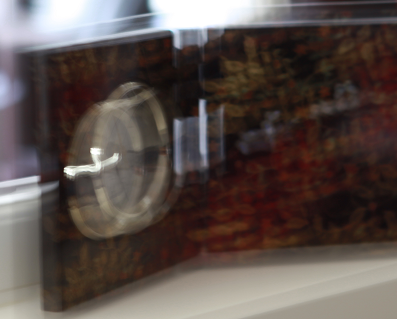
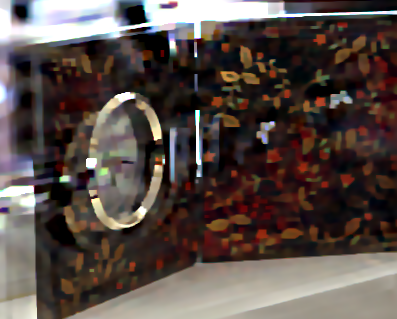

Jinshan Pan Zhouchen Lin Zhixun Su Ming-Hsuan Yang

|

|

|
| Real captured image | Deblurring result | Blur kernel |
Abstract
Estimating blur kernels from real world images is a challenging problem as the linear image formation assumption does not hold when significant outliers such as saturated pixels and non-Gaussian noise, are present. While some existing non-blind deblurring algorithms can partially deal with outliers, few blind deblurring methods are developed to well estimate the blur kernels from the blurred images with outliers. In this paper, we present an algorithm to address this problem by exploiting reliable edges and removing outliers in the intermediate latent images, thereby estimating blur kernel robustly. We analyze the effects of outliers on kernel estimation and show that most state-of-the-art deblurring methods may recover delta kernels when blurred images contain significant outliers. We propose a robust energy function which describes the properties of outliers for the final latent image restoration. Furthermore, we show that the proposed algorithm can be applied to improve existing methods to deblur images with outliers. Extensive experiments on different kinds of challenging examples demonstrate the proposed algorithm performs favorably against the state-of-the-art methods.
Technical Papers and Codes
Our Related Deblurring Work
![]() L0-Regularized Intensity and Gradient Image Deblurring
L0-Regularized Intensity and Gradient Image Deblurring
![]() Dark Channel Prior-based Image Deblurring
Dark Channel Prior-based Image Deblurring
![]() Exemplar-based Image Deblurring
Exemplar-based Image Deblurring
![]() Fast L0-Regularized Image Deblurring
Fast L0-Regularized Image Deblurring
![]() Low-Rank based Image Deblurring
Low-Rank based Image Deblurring
![]() Salient Edges based Image Deblurring
Salient Edges based Image Deblurring
Experimental Results
Synthetic Images
Real Images
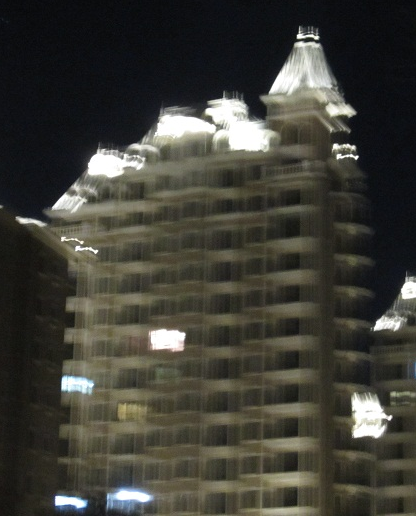
|
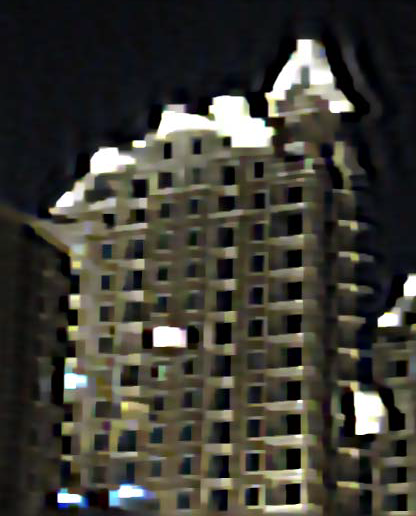
|
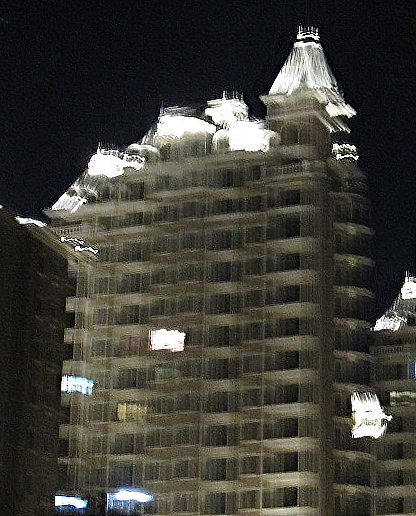
|
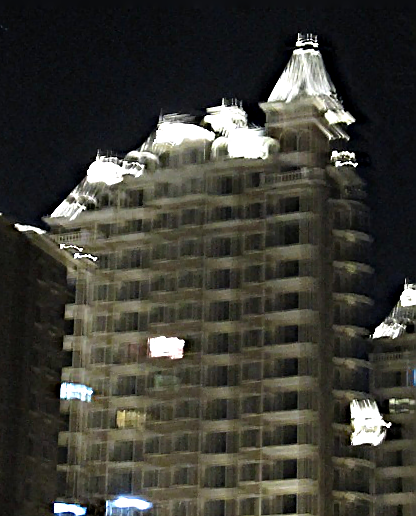
|
| Blurred image | Cho et al. ICCV 2011 | Xu and Jia ECCV 2010 | Levin et al. CVPR 2011 |
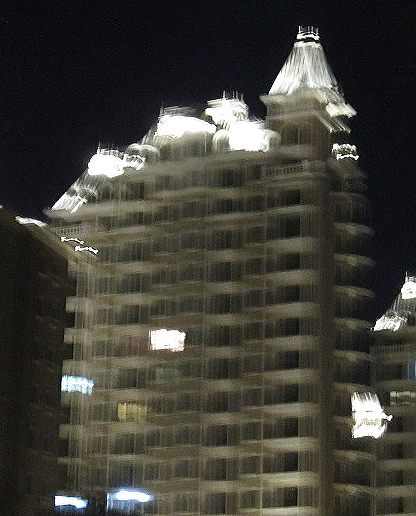
|
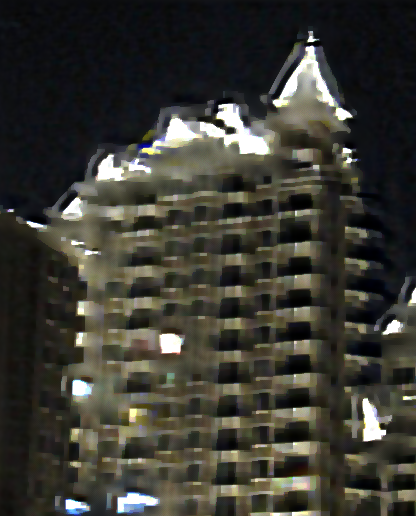
|
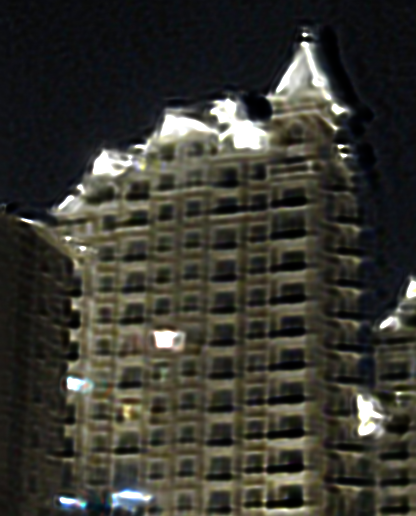
|
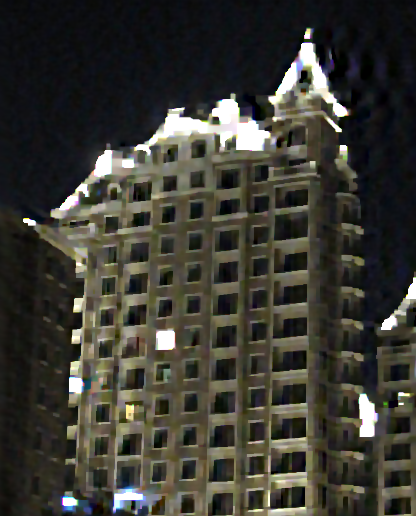
|
| Xu et al. CVPR 2013 | Hu et al. CVPR 2014 | Pan et al. CVPR 2014 | Ours |
Quantitative Evaluation on Natural Image Deblurring Datasets
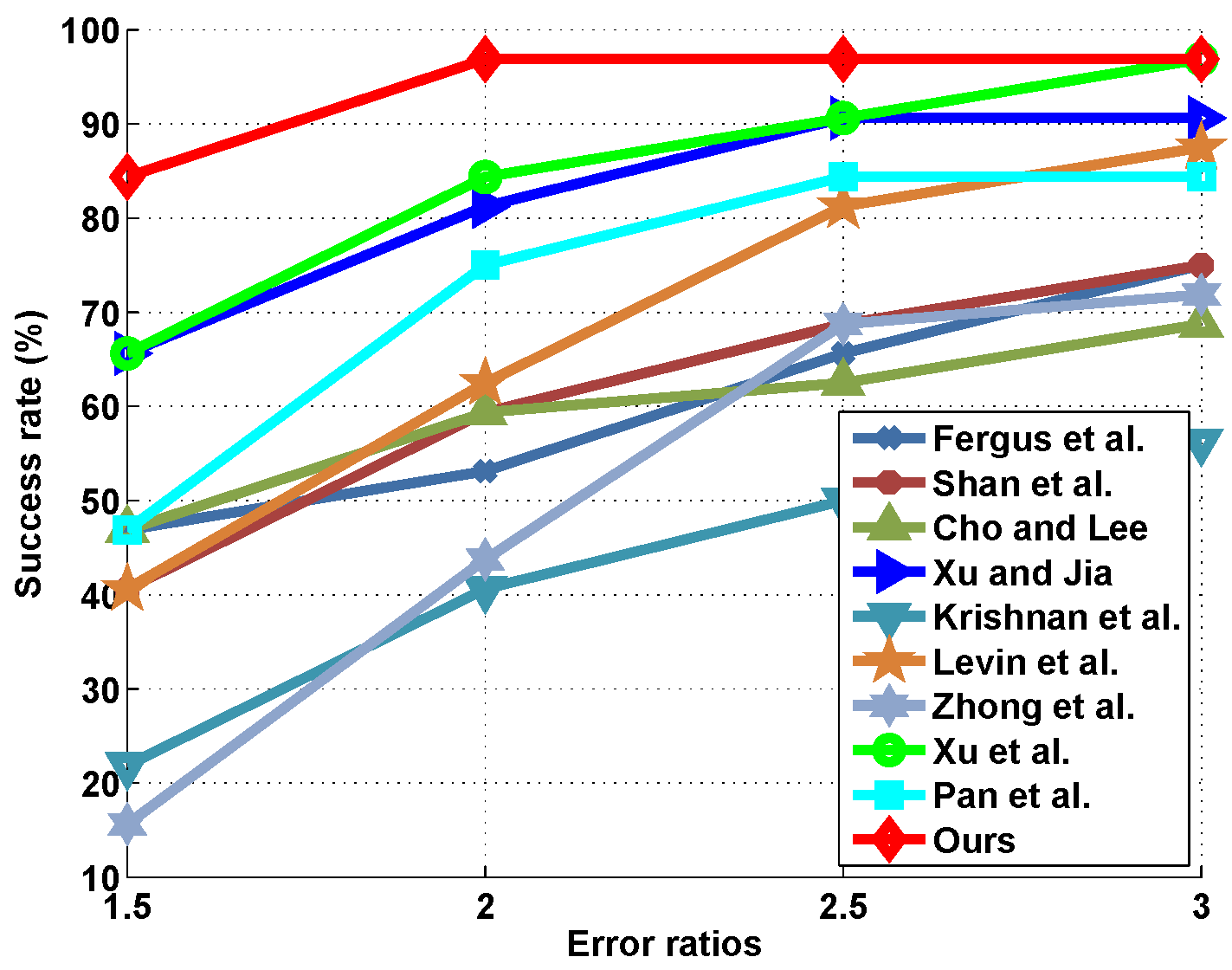
|
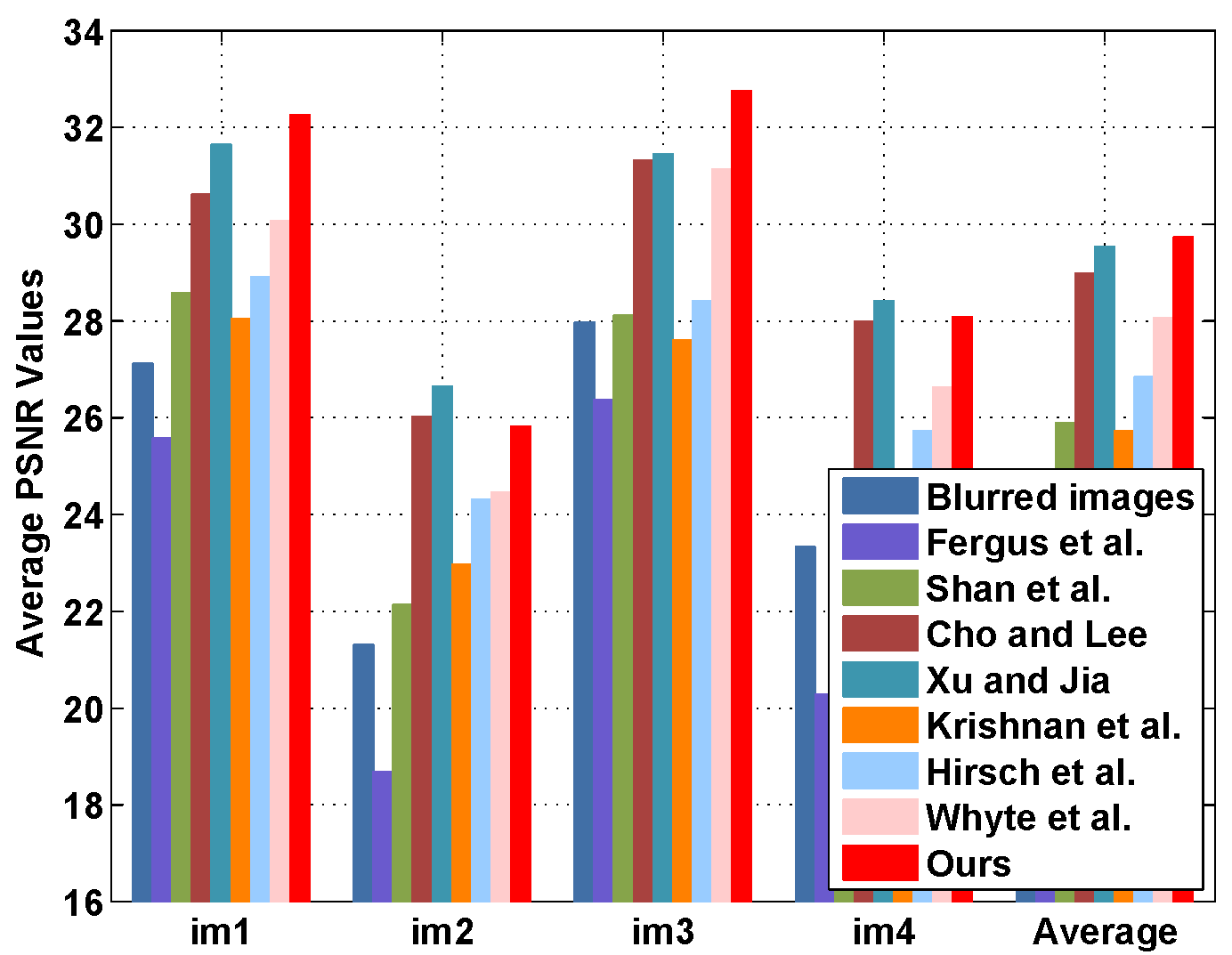
|
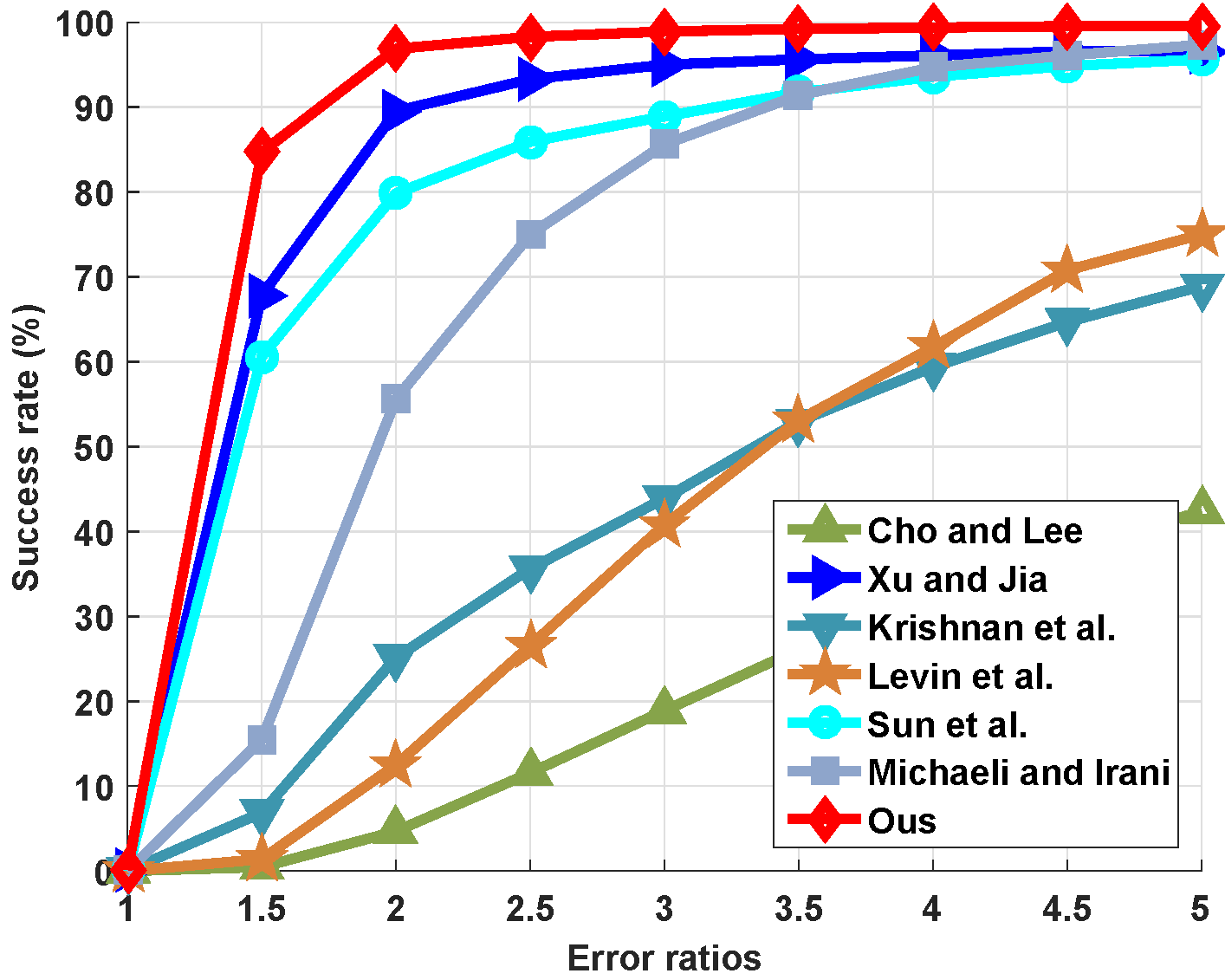
|
| Results on Levin et al. CVPR 2009's dataset | Results on Köhler et al. ECCV 2012's dataset | Results on Sun et al. ICCP 2013's dataset |
Quantitative Evaluation on Natural Image Deblurring Datasets

|
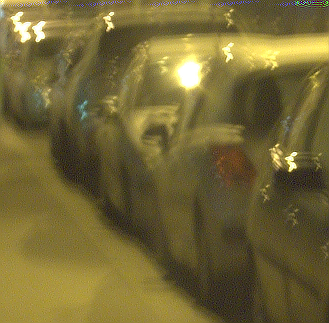
|
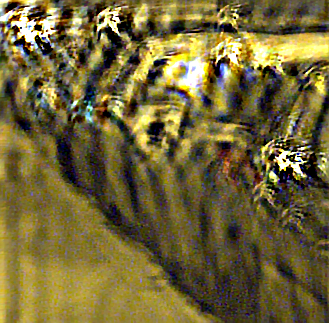
|
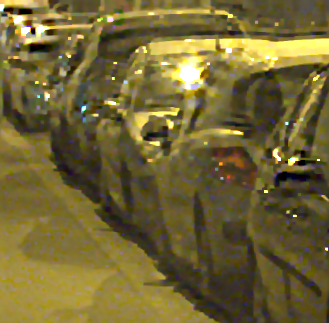
|
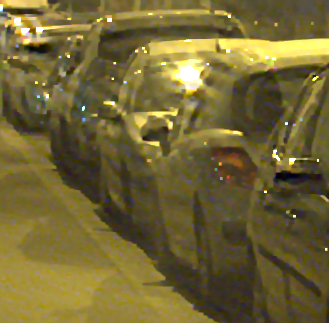
|
| Blurred image | Cho and Lee Siggraph Asia 2009 | Xu et al. CVPR 2013 | Cho and Lee with our method | Xu et al. with our method |
References
[1] S. Cho and S. Lee. “Fast motion deblurring”, SIGGRAPH ASIA 2009.
[2] S. Cho, J. Wang, and S, Lee. Handling Outliers in Non-blind Image Deconvolution. ICCV 2011.
[3] O. Whyte, J. Sivic, and A. Zisserman. Deblurring shaken and partially saturated images. ICCV Workshops 2011.
[4] L. Xu and J. Jia. “Two-phase kernel estimation for robust motion deblurring”, ECCV 2010.
[5] L. Xu, S. Zheng, and J. Jia. “Unnatural L0 sparse representation for natural image deblurring”, CVPR 2013.
[6] J. Pan, Z. Hu, Z. Su, and M.-H. Yang. “Deblurring text images via L0-regularized intensity and gradient prior”, CVPR 2014.
[7] Z. Hu, S. Cho, J. Wang, and M.-H. Yang. “Deblurring lowlight images with light streaks”, CVPR 2014.
[8] A. Levin, Y. Weiss, F. Durand, and W. T. Freeman, “Understanding and evaluating blind deconvolution algorithms,” CVPR 2009.
[9] D. Krishnan, T. Tay and R. Fergus. “Blind deconvolution using a normalized sparsity measure”, CVPR 2011.
[10] R. Kohler, M. Hirsch, B. Mohler and B. Scholkopf. “Recording and playback of camera shake: benchmarking blind deconvolution with a real-world database”, ECCV 2012.
[11] A. Levin, Y. Weiss, F. Durand, and W. T. Freeman. "Efficient marginal likelihood optimization in blind deconvolution", CVPR 2011.
[12] O. Whyte, J. Sivic, A. Zisserman, and J. Ponce. “Non-uniform deblurring for shaken images”, IJCV 2012.